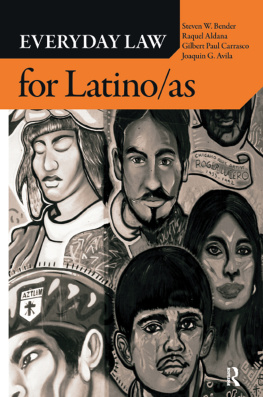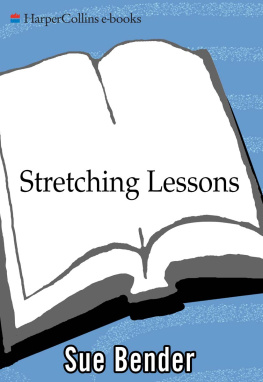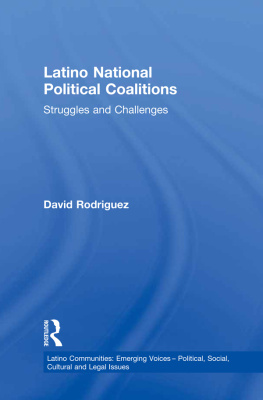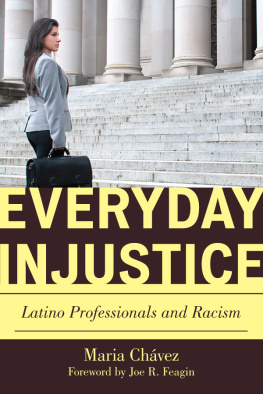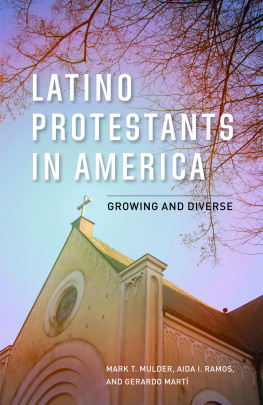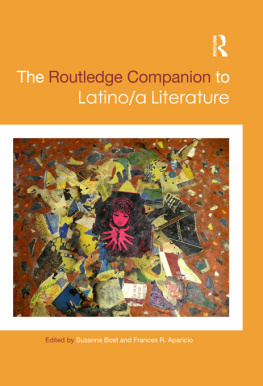Everyday Law for Latino/as
The Everyday Law Series
Edited by Richard Delgado and Jean Stefancic
University of Pittsburgh Law School
Everyday Law for Individuals with Disabilities
Ruth Colker and Adam Milani (2005)
Everyday Law for Children
David Herring (2006)
Everyday Law for Consumers
Michael L. Rustad (2007)
Everyday Law for Gays and Lesbians and Those Who Care about Them
Anthony C. Infanti (2007)
Everyday Law for Latino/as
Steven W. Bender, Raquel Aldana, Gilbert Paul Carrasco, and Joaquin G. Avila (2008)
Forthcoming
Everyday Law for Immigrants
Victor C. Romero (2008)
Everyday Law for Seniors
Lawrence Frolik and Linda Whitton
i
Everyday Law for Latino/as
Steven W. Bender, Raquel Aldana, Gilbert Paul Carrasco, and Joaquin G. Avila
First published 2008 by Paradigm Publishers
Published 2016 by Routledge
2 Park Square, Milton Park, Abingdon, Oxon OX14 4RN
711 Third Avenue, New York, NY 10017, USA
Routledge is an imprint of the Taylor & Francis Group, an informa business
Copyright 2008, Taylor & Francis.
All rights reserved. No part of this book may be reprinted or reproduced or utilised in any form or by any electronic, mechanical, or other means, now known or hereafter invented, including photocopying and recording, or in any information storage or retrieval system, without permission in writing from the publishers.
Notice:
Product or corporate names may be trademarks or registered trademarks, and are used only for identification and explanation without intent to infringe.
Library of Congress Cataloging-in-Publication Data
Everyday law for latino/as / Steven W. Bender [et al.].
p. cm.(The everyday law series)
Includes bibliographical references and index.
ISBN 978-1-59451-343-5 (hardcover : alk paper)
ISBN 978-1-59451-344-2 (pbk. : alk. paper)
1. Hispanic AmericansCivil rights. 2. DiscriminationLaw and legislationUnited States. 3. ImmigrantsCivil rightsUnited States. 4. Emmigration and immigration lawsUnited States. I. Bender, Steven.
KF4755.5.L38E934 2009
342.08'73dc22
2008026677
ISBN 13 : 978-1-59451-343-5 (hbk)
ISBN 13 : 978-1-59451-344-2 (pbk)
Designed and Typeset by Mulberry Tree Enterprises.
To my mother and the LatCrit community of scholars, activists, and friends.
Steven W. Bender
To mom and dad, in deep gratitude for all you gave up when you left your home to bring your children to the United States. And to my brother and sister for reminding me that we will always be family.
Raquel Aldana
To my mother, Delia Aurora Carrasco, with love and appreciation.
Gilbert Paul Carrasco
To my family. It is only through their support that I can continue to devote time and resources to pursue the goal of providing Latina/os with access to the political process.
Joaquin G. Avila
Contents
All the authors extend their gratitude to series editors Richard Delgado and Jean Stefancic for their vision in creating the Everyday Law series as well as their scholarly efforts on behalf of subordinated communities. We also appreciate the attitude and aptitude of the Paradigm Publishers editors. And we thank our research assistant Tara Donahue for her work on the index.
Raquel Aldana thanks Sarah Nakanishi, Lianne Wakayama, Adrian Deleon, and Sang Park for their research assistance. She especially thanks Barbara McDonald for her amazing editing. Raquel is also very grateful to her colleague Steve Johnson who generously contributed to the tax chapter included in this book. She could not do her work without the support of her deans, Richard Morgan and Joan Howarth, and the financial assistance of James Rogers.
Steven Bender thanks his research assistant, Lalo Garcia; his secretary, Debby Warren, for helping to coordinate this ambitious project; and his dean, Margie Paris, for her constant support.
Gil Carrasco would like to thank Willamette law students Daniel J. Rice, Ian Jeffrey Slavin, Joseph McIntosh, and Tara M. Donahue. He would also like to thank Willamette professor Keith Cunningham-Parmeter for providing useful comments regarding the rights of farm workers. Finally, he thanks Dean Symeon Symeonides for the academic support that facilitated the writing of this book.
We organized our handbook on Latino/as and the law around the three primary flashpoints that contribute to the unique legal treatment of Latino/asimmigration status, language regulation, and racial/ethnic discrimination. We examine these flashpoints in the venues of everyday life for Latino/asfrom discrimination in housing to discrimination and language regulation in the workplace and the lack of protection of immigrant labor, to classrooms where the bilingual education debate rages, to the voting booth and the criminal justice system where Latino/as confront racial profiling and language barriers. Before we consider these issues, we reflect on how their histories have shaped the current treatment of Latino/as under U.S. law.
Until enactment of the Immigration and Nationality Act of 1965, ceilings on immigration from Mexico and other Western Hemisphere countries did not existrather, immigration restrictions focused on excluding or limiting immigrants from Asia and Southern and Eastern Europe. Still, the absence of immigration restrictions did not prevent mass economic and racially driven deportations of Mexicans (even persons with U.S. citizenship) during the Great Depression and Operation Wetback in the 1950s. Initiated during World War II but with roots extending to World War I, the bracero (temporary worker) program facilitated the entry of Mexican workers into the U.S. fields and factories for agreed on wages and terms of employment. By 1964, however, a coalition of labor unions, religious organizations, and Mexican American groups, concerned both with the impacts of abundant bracero labor on wages and conditions for U.S. workers, and about abuses of participants in the bracero program, persuaded Congress to let the program lapse. The next year, the Immigration and Nationality Act of 1965 placed the first restrictions on Western Hemisphere immigration, limiting immigration from Mexico and other Central and Latin American countries. By 1976, in addition to the overall Western Hemisphere quota, immigration from Mexico was restricted to a 20,000-person limit annually. The combination of the end of the bracero program and these new limits on Latino/a immigration created the Latino/a undocumented immigrant problem that still commands headlines. Efforts to address undocumented immigrants have taken several tacks, none of them effective. In 1986, President Reagan signed the Immigration Reform and Control Act of 1986 that offered a pathway to citizenship to undocumented workers, but aimed to curb future undocumented immigration through employer sanctions. In the 1990s, President Clinton championed restrictive legislation arming urban border entry points that resulted in immigrants undertaking more dangerous crossings in desolate locations. For his part, President Bush favored a bracero-like guest worker program to import Mexican and other Central and South American workers without a potential for citizenship. Later, Bush supported comprehensive immigration reform that included a pathway, albeit a lengthy, expensive one, to citizenship, but Congress failed to enact reform in 2007.


